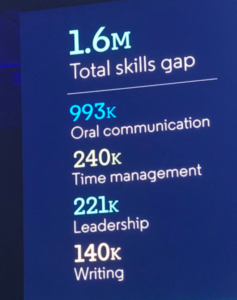Today on the Weekly Dose I take an updated look at ZipRecruiter. Often I’m writing about technology on my site that none of you have ever heard of. I’m 100% sure almost every single person who reads my blog has heard of ZipRecruiter! At the very least you’ve heard their commercials on TV, Radio, Podcasts, etc. They are everywhere!
ZipRecruiter started in 2011 primarily as the job board for hourly, blue-collar types, to help SMBs hire better and faster. They didn’t try to hide who they were, they set out to build a job board, and they did it through advertising everywhere and anywhere. Come hire people fast and cheap. Bam, that’s who we are.
Fast forward to 2018 and a fresh round of over $150M in new capital and ZipRecruiter is now one of the most trafficked sites on the internet! Over 1.5 million businesses have used Zip, and they have received over 430 million applications for jobs listed on the site. And still, the Recruiting Community loves to dump on ZipRecruiter!
On Facebook last month someone posted a comment about ZipRecruiter and some of the biggest recruiting brains on the planet immediately started talking “ish” about Zip. I had one simple question, “Hey, have you used them in the past year, two, three?” Not one of them!
I hesitated writing this post because I actually didn’t want to give Zip publicity! Why? Because it works, and if it works and I’m using it, and you’re not using it, I win!
Privately, I’ve been having this conversation with TA leaders for a year or so:
Tim – “Hey, are you guys using Zip?”
TA Leader – No, we tried them three years ago and they sucked!
Tim – “Okay, you might want to test them again!”
TA Leader – “Oh, you mean for hourly openings?
Tim – “No, for everything!”
Zip doesn’t get industry love from folks like me because Zip has never played “the game”! Meaning, Zip has never wined and dined the industry thought leaders or analyst. The belief is “hey, our customers are SMB and the vast majority of folks hiring for SMB will never read anything from an industry pundit”. Okay, that’s correct, but come one play the game with us, I love free steak! Instead of playing the game, they run more commercials and have built industry-leading technology behind the scenes!
As their leaders are proud of saying “We do things. We don’t talk about doing things.”
Zip has put a tremendous amount of resources and focus on engaging job seekers to make the experience sticky. That comes from ensuring Zip is matching jobs to candidates that actually match their skills and desires, not keywords. I can’t tell you how often I get sent emails from other sites for Nursing jobs! Why? I used to run TA at a health system and recruited Nurses! That’s bad tech. Zip doesn’t do that!
Zip’s recommendation matching technology is second to none. Netflix-like in the way it continues to improve based on the jobs you engage in and apply to, the more an applicant uses the technology the better the matching algorithm gets in returning great jobs to them the second one comes up on the site.
Google for Jobs (GFJ) also has had a tremendous positive impact on Zip’s candidate traffic. GFJ leveled the playing field for sites like Zip, and SEO is one other thing they are good at and prepared for when the opportunity came around. And Zip plans on using a bunch of that new cash to hammer home some machine learning SEO technology to continue to stay out in front and take advantage of the GFJ changes.
Is ZipRecruiter a silver bullet? No. Nothing in the industry is a silver bullet right now. Can ZipRecruiter be one of those bullets you have to finish the job? 100%. Will ZipRecruiter fill your Java Developer opening in BFE Wisconsin? Probably not, but nothing else will either! Will they drive additional traffic to most of your jobs, for a fairly inexpensive cost? Yes, they will, and that’s what they set out to do all along.
I’m a huge fan of testing annually. You’ll rarely hear me say, “Yeah, that didn’t work three years ago, so we don’t use it!” Really, three years ago? Okay, well, good for you! In TA we need to be a function of constantly testing and trying. You will be amazed at what doesn’t work in January, amazingly will work in July, etc. So, if you haven’t tried ZipRecruiter recently, it might be worth a test!

The Weekly Dose – is a weekly series here at The Project to educate and inform everyone who stops by on a daily/weekly basis on some great recruiting and sourcing technologies that are on the market. None of the companies who I highlight are paying me for this promotion. There are so many really cool things going on in the tech space and I wanted to educate myself and share what I find. If you want to be on The Weekly Dose – just send me a note – timsackett@comcast.net
Want help with your HR & TA Tech company – send me a message about my HR Tech Advisory Board experience.


